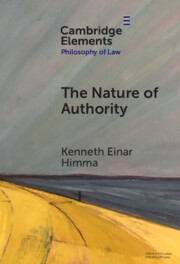Element contents
The Nature of Authority
Published online by Cambridge University Press: 04 December 2024
Summary
- Type
- Element
- Information
- Series: Elements in Philosophy of LawOnline ISBN: 9781009255790Publisher: Cambridge University PressPrint publication: 09 January 2025

